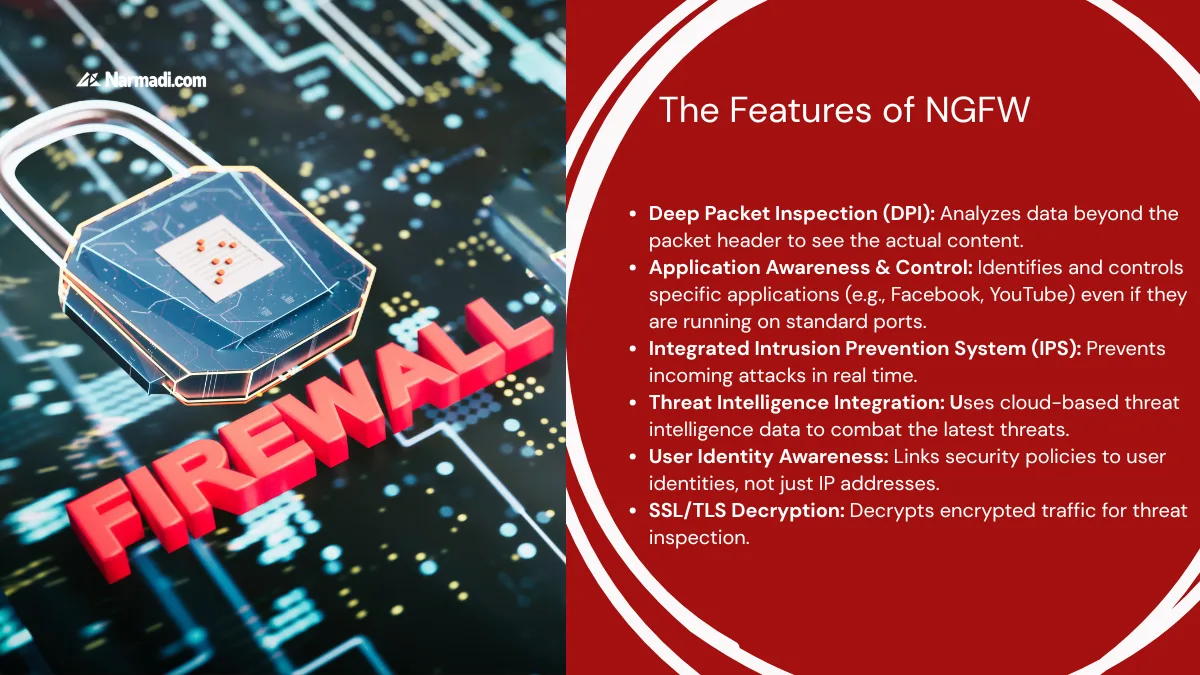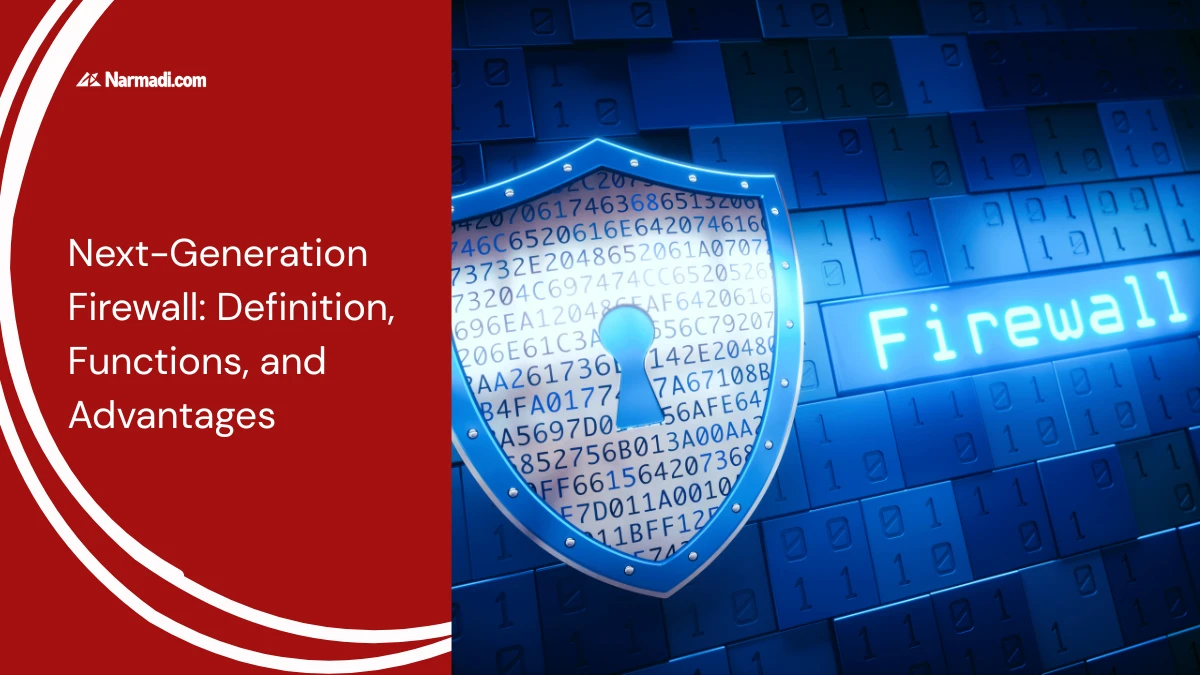Firewalls make it easier to monitor and control incoming and outgoing data traffic, especially in network security. One type of firewall is the Next-Generation Firewall (NGFW), which has several functions and advantages.
The functions of next-generation firewalls include application control and content filtering. In addition, its advantages include intrusion prevention systems, advanced malware protection, and cost efficiency.
This article will provide information about next-generation firewalls, including their definition, functions, and advantages.
What is a Next-Generation Firewall?
Next-generation firewalls (NGFWs) are a type of firewall that offers advanced features not found in traditional firewalls, such as deep inspection of network traffic, application awareness, and intrusion prevention capabilities.
NGFWs are at the top of the firewall hierarchy because they are the most advanced systems. They offer sophisticated packet filtering.
The Functions
Next-generation firewalls have several functions, ranging from application control to content filtering. Here are some of their functions:
- Application control: Can identify and control applications running on the network to block or restrict access to potentially dangerous applications.
- User identification: Can identify users connected to the network using different devices or from different locations.
- Content filtering: Content accessed by users will be filtered so that access to unwanted content will be blocked.
The Features

The next-generation firewall has several key features that make it better than traditional firewalls. These features include:
- Deep Packet Inspection (DPI): Analyzes data beyond the packet header to see the actual content.
- Application Awareness & Control: Identifies and controls specific applications (e.g., Facebook, YouTube) even if they are running on standard ports.
- Integrated Intrusion Prevention System (IPS): Prevents incoming attacks in real time.
- Threat Intelligence Integration: Uses cloud-based threat intelligence data to combat the latest threats.
- User Identity Awareness: Links security policies to user identities, not just IP addresses.
- SSL/TLS Decryption: Decrypts encrypted traffic for threat inspection.
The Advantages

The next-generation firewall has several advantages, from an intrusion prevention system, advanced malware protection, to cost efficiency. Here are some of its main advantages in detail:
1. Intrusion Prevention System (IPS)
One of the advantages of a next-generation firewall is that it has an intrusion prevention system (IPS). This device can monitor network traffic for signs of attack or suspicious activity, and then the IPS will automatically block or reject.
2. Deep Packet Inspection (DPI)
Having a Deep Packet Inspection (DPI) system is one of the advantages of an NGFW. This device is capable of performing a deep inspection of data packets from the header to the contents. This allows it to detect malware, exploits, and anomalies that may be hidden.
3. Advanced malware protection
Advanced malware protection is another advantage of the next-generation firewall. The spread of malware, including ransomware and other attacks, can be detected and prevented by this device.
4. Improve network visibility
By using an NGFW, network traffic and application usage can be viewed in detail. This ability makes potential threats well-detected, and network performance can be optimized.
5. Cost efficiency
Another advantage of the next-generation firewall is that it can reduce costs. This device has various security functions so that it can reduce operational costs by eliminating the need for multiple security solutions.
The Difference Between Traditional Firewalls
Here are the differences between a next-generation firewall and a traditional firewall
| Features | Traditional Firewall | Next-Generation Firewall (NGFW) |
| Work Layer | Layer 3 & 4 (IP, Port, Protocol) | Layer 2 to Layer 7 (including Applications) |
| Packet Inspection | Basic packet filtering (header) | Deep Packet Inspection (DPI) – analyzes full content |
| Application Control | None | Application control (e.g., block Facebook, allow YouTube) |
| Intrusion Prevention | No integrated IPS | Integrated Intrusion Prevention System (IPS) |
| Identity Awareness | IP Address-based | Identity awareness (users & machines) |
| Threat Intelligence | None, dependent on static rules | Uses external threat intelligence |
| SSL/TLS Inspection | None | Supports SSL/TLS inspection |
That is the definition, function, features, and advantages of next-generation firewalls. What makes NGFW different from its predecessors is that it is essential for modern businesses that face advanced threats, risky applications, and require granular control. It even has full visibility of network traffic. [UN]

